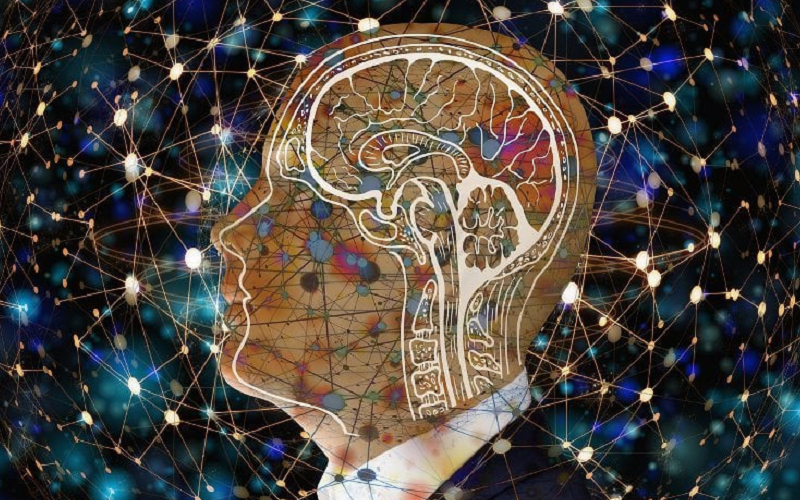
When we think of Vitamin D, sunlight and bone health often come to mind, but its influence extends far beyond, playing a pivotal role in our brain function and mental agility. Scientific studies have increasingly highlighted the significant impact of hormones on our brain health, with Vitamin D emerging as a key player in neuroprotection and cognitive performance. Here we explore the various ways Vitamin D influences our brain, examine the consequences of its deficiency, and look at how optimizing our Vitamin D levels can be a gateway to enhancing cognitive resilience.
Contents
Understanding Vitamin D
Vitamin D, often dubbed the “sunshine vitamin,” is a nutrient that has captured the attention of the medical community due to its multifaceted role in human health. While commonly recognized for its importance in bone health, Vitamin D also functions as a hormone, a fact that has significant implications for brain health and cognitive function.
Definition and Sources of Vitamin D
Vitamin D is a fat-soluble vitamin, essential for various bodily functions, including the absorption of calcium and phosphorus, and the maintenance of bone structure. It is unique among vitamins because it can be synthesized by the human body when the skin is exposed to sunlight, specifically ultraviolet B (UVB) rays.
Apart from sunlight, Vitamin D can also be obtained from certain foods. Dietary sources of Vitamin D include fatty fish such as salmon, mackerel, and tuna, fish liver oils, and small amounts in beef liver, cheese, and egg yolks. In many countries, foods like milk, cereal, and orange juice are fortified with Vitamin D to help meet daily requirements.
Vitamin D as a Hormone
What sets Vitamin D apart from other vitamins is its function as a hormone. After Vitamin D is produced in the skin or absorbed from the diet, it undergoes two transformations in the body – first in the liver and then in the kidneys. This process converts Vitamin D into its active hormonal form, known as calcitriol.
As a hormone, calcitriol circulates in the bloodstream and binds to Vitamin D receptors located in various body tissues, including the brain. This binding influences numerous physiological processes, ranging from calcium metabolism to immune function, and as emerging research suggests, brain health [1].
The Body’s Synthesis of Vitamin D
The synthesis of Vitamin D in our bodies is a remarkable process. When the skin is exposed to UVB radiation from sunlight, a substance in the skin called 7-dehydrocholesterol is converted into Vitamin D3 (cholecalciferol). However, this form of Vitamin D is not immediately active.
It first travels to the liver, where it is converted into 25-hydroxyvitamin D, also known as calcidiol. This is the form of Vitamin D typically measured in blood tests to assess Vitamin D status. The final step occurs in the kidneys, where calcidiol is converted into the active hormone calcitriol. This complex synthesis underscores the importance of adequate sunlight exposure and dietary intake to maintain optimal Vitamin D levels.
Cognitive Resilience: An Overview
As we go deeper into the connection between Vitamin D and cognitive health, it is crucial to first understand what cognitive resilience means. This concept is key to appreciating the full impact of Vitamin D on our mental functioning. Cognitive resilience refers to the brain’s ability to effectively function and maintain cognitive abilities despite aging, injury, or neurological diseases.
Definition and Significance of Cognitive Resilience
Cognitive resilience is the capacity of an individual to maintain or regain cognitive function in the face of stress, damage, or disease affecting the brain. This resilience is not merely about the absence of disease but encompasses the brain’s ability to adapt and function optimally despite challenges. It is particularly significant as we age, with cognitive resilience being a major factor in how well individuals maintain their mental acuity into their later years.
Understanding cognitive resilience is vital for developing strategies to enhance brain health and potentially delay or mitigate the effects of aging and neurodegenerative diseases like Alzheimer’s and Parkinson’s [2].
Factors Influencing Cognitive Resilience
Several factors contribute to cognitive resilience. These include genetic factors, lifestyle choices, environmental influences, and biological factors like neuroplasticity – the brain’s ability to reorganize itself by forming new neural connections.
Lifestyle factors such as physical exercise, mental stimulation, social engagement, and a balanced diet play a crucial role in maintaining cognitive resilience. Environmental factors like exposure to pollutants and chronic stress can negatively impact cognitive function. Understanding these factors is essential for creating effective interventions to bolster cognitive resilience.
Impact of Aging on Cognitive Health
Aging is a natural process that often brings about changes in cognitive function. While some cognitive decline is a normal part of aging, the rate and extent of this decline vary greatly among individuals. Factors such as genetics, overall health, and lifestyle choices can significantly influence the aging process of the brain.
Age-related cognitive decline can manifest in various ways, including slower processing speeds, difficulties with memory, and challenges in problem-solving and decision-making. However, cognitive resilience can help mitigate these effects, allowing individuals to maintain higher levels of cognitive function despite the biological changes of aging.

Scientific Research on Vitamin D and the Brain
The connection between Vitamin D and brain health is a rapidly evolving area of scientific inquiry. Numerous studies have explored how Vitamin D interacts with the brain, influencing cognitive function and potentially offering protection against cognitive decline.
Overview of Key Studies on Vitamin D and the Brain
Research over the past few decades has begun to unravel the complex role of Vitamin D in the brain. Epidemiological studies have consistently shown correlations between low levels of Vitamin D and increased risks of cognitive decline and dementia. Clinical trials have also been conducted to understand the impact of Vitamin D supplementation on cognitive function.
One notable study, published in the “Journal of Neurology, Neurosurgery, and Psychiatry,” found that older adults with lower levels of Vitamin D were more likely to exhibit cognitive impairment. Another study, featured in the “American Journal of Geriatric Psychiatry,” showed that Vitamin D supplementation improved cognitive function in individuals with Vitamin D deficiency.
Vitamin D’s Role in Neuroprotection
Vitamin D is believed to contribute to neuroprotection through various mechanisms. Its active form, calcitriol, has been shown to support the survival of neurons, reduce oxidative stress, and modulate inflammatory responses in the brain. These actions are crucial for maintaining the health of brain cells and preventing degenerative processes that can lead to cognitive decline.
In addition to its direct effects on neurons, Vitamin D also influences the production of neurotrophins, proteins that are vital for the survival, development, and function of neurons. Research indicates that Vitamin D enhances the expression of these neurotrophins, further supporting brain health [3].
The Link Between Vitamin D Levels and Cognitive Function
The relationship between Vitamin D levels and cognitive function is an area of intense research. Studies have found that Vitamin D deficiency is associated with an increased risk of developing cognitive impairments, particularly in older adults. Conversely, maintaining adequate levels of Vitamin D has been associated with better cognitive performance, especially in tasks involving executive function and attention.
While these findings are promising, it is important to note that the relationship between Vitamin D and cognitive function is complex and influenced by various factors, including age, genetics, and overall health. As research in this field continues to grow, it will provide deeper insights into how Vitamin D supports cognitive health and how it can be harnessed to improve cognitive resilience.
Mechanisms of Action of Vitamin D
The beneficial effects of Vitamin D on cognitive resilience are rooted in its diverse mechanisms of action within the brain. These mechanisms are complex and multifaceted, impacting various aspects of brain function and health. Understanding these mechanisms is key to comprehending how Vitamin D contributes to cognitive resilience and overall brain health.
Vitamin D Receptors in the Brain
One of the primary ways Vitamin D influences brain function is through its interaction with Vitamin D receptors (VDRs). These receptors are found throughout the brain, including in regions critical for learning and memory, such as the hippocampus and cortex. When Vitamin D binds to these receptors, it can regulate the expression of numerous genes involved in brain function.
This gene regulation is crucial for many brain processes, including the growth and development of neural cells, synaptic plasticity (the ability of synapses to strengthen or weaken over time), and neuroprotection. The widespread presence of VDRs in the brain underscores the significant role Vitamin D plays in maintaining cognitive health.
Vitamin D and Neurotransmitter Synthesis and Regulation
Vitamin D is involved in the synthesis and regulation of several neurotransmitters, including dopamine, serotonin, and glutamate. These neurotransmitters are essential for mood regulation, cognitive function, and overall brain health.
For instance, Vitamin D has been shown to influence the production of serotonin, a neurotransmitter that plays a key role in mood regulation, learning, and memory. Adequate levels of Vitamin D are necessary for optimal serotonin synthesis, which in turn can affect cognitive functions and mental health [4].
Vitamin D and Anti-Inflammatory and Antioxidant Effects
Inflammation and oxidative stress are two processes known to contribute to cognitive decline and neurodegenerative diseases. Vitamin D exhibits both anti-inflammatory and antioxidant properties, which can protect the brain from these harmful processes.
Vitamin D can modulate the immune system’s response within the brain, reducing inflammation that can lead to neuronal damage. Its antioxidant effects also help in reducing oxidative stress, a factor implicated in aging and various neurodegenerative disorders. These protective roles of Vitamin D are critical for maintaining brain health and enhancing cognitive resilience, especially in older adults.

Vitamin D Deficiency and Cognitive Decline
Vitamin D deficiency is a global health issue that has significant implications for cognitive health. Understanding the relationship between Vitamin D deficiency and cognitive decline is crucial for developing strategies to maintain cognitive resilience, especially in populations at risk.
Prevalence of Vitamin D Deficiency
Vitamin D deficiency is surprisingly common worldwide, affecting people of all ages and backgrounds. Factors contributing to this deficiency include limited sun exposure due to geographic location, lifestyle, or use of sunscreen; dietary insufficiency; and certain medical conditions that affect Vitamin D absorption or metabolism.
The prevalence of Vitamin D deficiency is particularly concerning in older adults, a group already at risk for cognitive decline. Aging can reduce the skin’s ability to produce Vitamin D, and dietary intake may not always compensate for this decrease. This widespread deficiency highlights the need for increased awareness and proactive measures to ensure adequate Vitamin D levels in the population.
Correlation of Vitamin D Deficiency with Cognitive Impairment and Dementia
Research has established a link between Vitamin D deficiency and an increased risk of cognitive impairment and dementia. Several studies have shown that low levels of Vitamin D are associated with poorer performance on cognitive tests, especially those assessing executive function and attention.
Moreover, longitudinal studies have found that Vitamin D deficiency can be a predictor of cognitive decline and the development of dementia, including Alzheimer’s disease. While the exact nature of this relationship is still being explored, these findings suggest that maintaining adequate Vitamin D levels could be vital for preserving cognitive health.
Potential Risks of Low Vitamin D Levels
The risks associated with Vitamin D deficiency extend beyond cognitive decline. Vitamin D deficiency has been linked to various health issues, including bone disorders, muscle weakness, increased risk of falls, and a weakened immune system.
In the context of cognitive health, Vitamin D deficiency may exacerbate the progression of neurodegenerative diseases and increase the vulnerability of the brain to other detrimental factors like inflammation and oxidative stress. These risks underscore the importance of early detection and management of Vitamin D deficiency as part of a comprehensive approach to maintaining cognitive resilience and overall health [5].
Enhancing Cognitive Resilience with Vitamin D
Given the established link between Vitamin D and cognitive health, understanding how to effectively enhance cognitive resilience through this nutrient is essential.
Recommended Daily Intake of Vitamin D
The recommended daily intake of Vitamin D varies based on age, geographic location, skin color, and current health status. Generally, adults require about 600 to 800 IU (International Units) per day, though some health experts suggest higher amounts, especially in older adults or individuals with existing health issues.
It is important to consult with a healthcare provider to determine the appropriate Vitamin D intake for individual needs, particularly if there are concerns about deficiency or existing health conditions. Regular blood tests can help monitor Vitamin D levels and ensure they are within a healthy range.
Sources of Vitamin D: Sunlight, Diet, and Supplements
Achieving adequate Vitamin D levels can be accomplished through a combination of sunlight exposure, dietary intake, and supplementation.
Sunlight Exposure
Regular, moderate exposure to sunlight is the most natural way to boost Vitamin D levels. The amount of sun exposure needed can vary; however, exposing the face, arms, legs, or back to sunlight for 10 to 30 minutes a few times a week is generally sufficient for most people.
Dietary Sources
Including Vitamin D-rich foods in the diet is another effective way to increase intake. Fatty fish like salmon and mackerel, fish liver oils, and Vitamin D-fortified foods such as milk, orange juice, and cereals are excellent sources.
Supplements
For those unable to get sufficient Vitamin D from sunlight and diet, supplements can be an effective alternative. Vitamin D supplements come in two forms: D2 (ergocalciferol) and D3 (cholecalciferol), with some studies suggesting that D3 is more effective in raising blood levels of Vitamin D.
Synergy of Vitamin D with Other Nutrients and Lifestyle Factors
Optimizing Vitamin D levels for cognitive health is not just about focusing on this single nutrient. It works best in conjunction with other health-promoting factors.
Other Nutrients
Calcium, magnesium, and Vitamin K are important for Vitamin D metabolism and overall health. A balanced diet including these nutrients can enhance the benefits of Vitamin D.
Lifestyle Factors
Regular physical activity, cognitive exercises, social engagement, and managing stress levels complement the benefits of Vitamin D in promoting cognitive resilience.
References
[1] Brain vitamin D forms, cognitive decline, and neuropathology in community-dwelling older adults
[2] Role of Vitamin D in Cognitive Dysfunction
[3] Vitamin D Status May Affect Resilience and Recovery from Mild Traumatic Brain Injury
[4] Is there a role for vitamin D in supporting cognitive function as we age?
[5] Can vitamin D status influence the effect of stress on planning and problem-solving?

